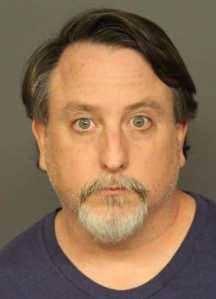21-year-old sexual assault case solved with DNA

By Logan Smith
Click here for updates on this story
DENVER (KCNC) — Denver detectives recently connected a Missouri man to a 2004 sexual assault in Denver by secretly swooping in after the suspect’s meal and gathering his utensils for DNA testing.
Using a successful match between material on the utensils and two-decade-old evidence collected from the assault, 52-year-old Jason Groshart was sentenced last week to 32 years in the Colorado Department of Corrections. Groshart avoided trial by pleading guilty in July to one count each of felony kidnapping and sexual assault.
The details of the attack are chilling. On March 30, 2004, the female victim left her job early with a migraine headache and fell asleep at home on her bed. She was awakened by her dog’s barking. Her attacker, later identified as Groshart, was already in her bedroom, according to a case document.
The man placed her wrists in handcuffs behind her back, put a bag over her head and put the dog in the closet.
The woman fought with him at the outset of the attack, according to the arrest affidavit, and kicked at Groshart. Groshart then placed a handgun under her chin and asked, “Is this worth dying for?”
Following the assault, Groshart demanded with woman shower with him, per the affidavit. He then placed all of the used bath towels and bed linens in a trash bag and left with them.
The victim recalled to investigators that her attacker said she should not have left her alarm system off, and that he had committed this type of offense previously. He also unplugged the victim’s home phone on his way out the door, according to prosecutors.
Evidence from the attack was gathered from stains on her robe and a sexual assault examination kit.
The DNA collected, however, did not immediately match any existing profile on police databases, and the case went cold.
Until 2022.
In March of that year, the Denver Police Department and Denver Crime Lab reopened the investigation. Through genetic genealogy DNA research, a tool used by Denver’s Integrated Cold Case Project, a possible connection to Groshart was established.
By that time, Groshart was living in Sedalia, Missouri.
Conclusive evidence was still needed.
A Denver Police Department spokesman, Matt Jablow, told CBS Colorado that “Groshart’s DNA was surreptitiously collected from abandoned eating utensils.”
No other details about that evidence collection were provided.
Groshart was arrested in October 2022, less than two weeks after the DNA samples were sent to the Denver Crime Lab for analysis.
“The arrest of Groshart demonstrates our commitment to victims of crime and that the Denver Police Department never forgets,” said then-Denver Chief of Police Ron Thomas in a statement.
“It’s hard to imagine the terror the victim felt during and after this horrific crime, and it is my hope that this significant sentence gives her some sense of comfort that Jason Groshart will likely never be able to victimize anyone else ever again,” stated Denver District Attorney John Walsh in a press release announcing Groshart’s sentencing on Wednesday.
The genetic genealogy testing was partially funded by a federal grant from the Bureau of Justice Assistance, a U.S. Department of Justice program.
Please note: This content carries a strict local market embargo. If you share the same market as the contributor of this article, you may not use it on any platform.